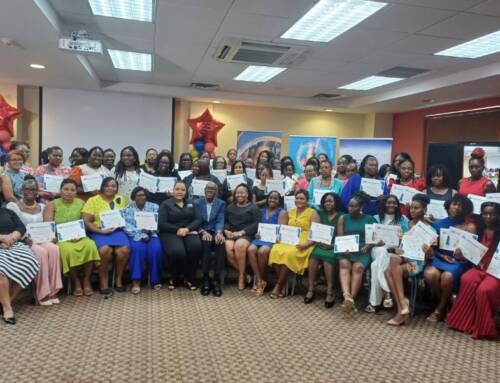The Early Childhood Commission’s (ECC) basic-school certification programme, now under way islandwide, is ensuring that all early-childhood institutions (ECIs) meet the 12 Operational Standards set by that body.
The three-year engagement of the new Board of Commissioners commenced in May 2016, targeting 300 ECIs to be certified by 2019.
The Standards cover a wide range of areas. These include Staffing; Developmental/Educational Programmes; Interactions and Relationships with Children; the Physical Environment; Indoor and Outdoor Equipment, Furnishing and Supplies; Health; Nutrition; Safety; Child Rights, Child Protection and Equality; Interactions with Parents and Community Members; Administration; and Finance.
- Staffing – stipulates the need for institutions’ staff to have or acquire the characteristics, training, knowledge, skills, and attitude to help children achieve their full potential.
- Developmental/Educational Programmes – mandates institutions to implement comprehensive programmes designed to meet children’s language, physical, cognitive, socio-emotional, spiritual, cultural and school-readiness needs.
- Interactions and Relationships with Children – emphasises the need for staff to have or acquire the characteristics, training, knowledge, skills and attitude to promote positive behaviours in children and reduce those deemed difficult and challenging.
- Physical Environment – underscores that institutions must create environments meeting building, health and safety stipulations for children, and provide adequate space to facilitate their development and that of the staff.
- Indoor and Outdoor Equipment, Furnishing and Supplies – stipulates that institutions provide safe child-friendly equipment and furnishings that promote the optimal development of children.
- Health – emphasises that institutions provide physical facilities, policies, programmes and procedures promoting healthy lifestyles, while safeguarding children and staff against illnesses.
- Nutrition – mandates institutions to provide nutritious meals and model good nutritional practices for children in their care as well as their families.
- Safety – highlights the importance of ECIs providing safe indoor and outdoor environments for children, staff, stakeholders and visitors.
- Child Rights, Child Protection and Equality – mandates institutions to uphold children’s rights and protect them from harm, while ensuring they have equal access to services.
- Interactions with Parents and Community Members – requires institutions’ management and staff to establish and maintain healthy relationships with parents, caregivers, family members and the wider community.
- Administration – emphasises the importance of establishing a sound management structure that guarantees effective operations. These are expected to be guided by established plans, policies, procedures and programmes that ensure child, family and staff well-being.
- Finance – institutions are required to have sound financial practices by adhering to standard accounting principles.
The ECC’s Acting Executive Director, Karlene Degrasse-Deslandes, says the Commission’s certification fairs have been pivotal in assisting practitioners, operators, parents and other stakeholders to better understand the Standards.
To date, three fairs have been held at Jamaica College in St. Andrew; Port Antonio, Portland; and Santa Cruz, St. Elizabeth.
Emphasis, she points out, has been placed on highlighting the performance criteria under each Standard.
The fairs have been complemented by several training sessions staged for a number of practitioners, including money management workshops.
“We have increased our drive to ensure that the Standards are user-friendly, so that persons can understand what they need to do to get their institutions certified,” the ECC Acting Executive Director points out.
Mrs. Degrasse-Deslandes reiterates that the overall undertaking aims to ensure that, over the long term, “we have positive child outcomes”.
“We are speaking of a Jamaican child that can compete with any child anywhere in the world, at any time. So, we will tailor our interventions and our interactions, where necessary. Our children must be afforded the same start in order for them to get to where we need them to reach,” she adds.
The ECC’s Chairperson, Trisha Williams-Singh, maintains that certification of the minimum 300 schools being targeted is “achievable”.
“We are pretty confident because of the plans that have been put in place. We have undertaken capacity building within the Early Childhood Commission. We have also looked at capacity building for the practitioners and deepening relationships with our partners. I am, therefore, confident that a minimum of 300 schools will be certified by this Board by 2019,” she adds.




